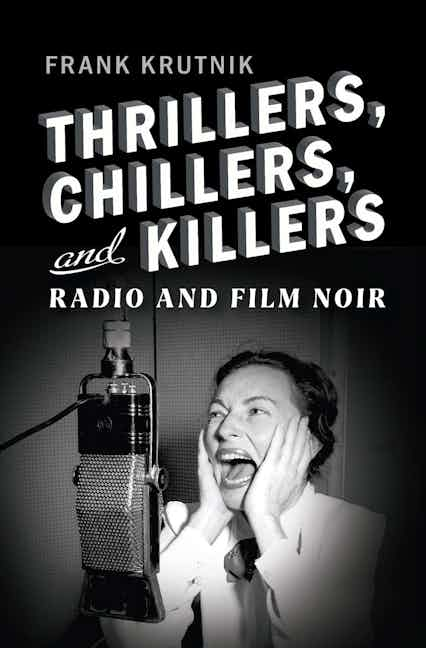This is the first of seven scripts for the series by “Michael Frost.” It’s a pseudonym for writer Hank Searls who already had two scripts presented on the series. Ruth Hussey plays the wife of an Air Force gun tester whose target is an automatically piloted drone aircraft in which, unknown to him, his young son is riding. In the opening monologue, Robson suggests that the story is a real tear-jerker, and might “require accessory equipment in addition to your radio set, especially if you're a parent. We suggest that you provide yourself with a glass of water to slake the dryness in your mouth and melt the lump in your throat, and also a handkerchief and some other suitable material to cope with your tears. It is a story or unpremeditated murder, the unwilling and unplanned killing of a little boy by his father.”
The way it is set up you’re expecting something quite different than a story about a military test pilot flying a plane carrying missiles. Somehow, the drone plane that is the test target has his son and a friend on board. It is a “friendly fire” story, always tragic, that is too logistically impossible a story today and was an implausible one then. We’re supposed to believe that two small children went on a military base and climbed into a drone plane for that day. They got through security and the maintenance personnel who prepped the drone for its flight were no where around and did no last minute final safety checks.
It all started at the breakfast table, when the pilot’s small boys badgered him to view the missile test. A neighbor’s young girl joins them in some outside play, and they decide to go to the base. A boy and a girl get into the drone before it takes off, so of course, the younger boy, prone to exaggeration, is the one who eventually has to explain where they are. While that’s going on, the father is testing the plane, and the plot complication is that communications between him and the tower are garbled. Since he’s an experienced test and fighter pilot, and knows the flight plan and his task well, he commences with the test. That’s what builds the tension of the story. His track record of effectiveness means he is unknowingly a true threat to his innocent children.
There is so very much to the plot details that have to be set aside that they block the tension and fear of the story. Robson prepped the listeners better than the maintenance personnel prepped the drone. Today’s video security alone would make it a near impossibility for two children to get into the drone. They’d be stopped in their tracks elsewhere. That makes the story too unbelievable. It is hard to push those impracticalities away, but if you can, the tension and fear is done well. But it does not add up to a good Suspense production.
The episode was recorded on Thursday, October 23, 1957. Rehearsal began at 2:00pm and concluded at 5:00pm. At that time, recording began followed by editing. The session ended at 7:00pm.
There are two surviving recordings, both from the Armed Forces Radio Service (AFRS#655 and AFRS#957). The recordings can be differentiated by the announcements after the Robson monologue:
AFRS#655: UNICEF;
AFRS#957: Military medal: The Distinguished Service Cross (read by Vin Scully, voice of the Los Angeles Dodgers).
Of the two recordings, AFRS#957 has the better sound, despite some disc skips before the Robson monologue.
For decades, this episode circulated as an AFRS aircheck that was heavily edited and had sub-par sound. It is good that it is finally available in much better sound and is complete. No network recording is known to exist.
The original title of the story was “Firing Gun.” Or, that could be CBS publicity sending out incorrect publicity information. Press release drafts with sloppy handwriting can create such situations; they did happen. Newspaper clips have “Gun,” but there are no notations on the script that indicate a change. If there was one, it happened well before the final scripts were printed and after the press releases were mailed out.
This was Ruth Hussey’s sole appearance on the series. She had a long movie and television career. Her breakout role was early in that career, when she was nominated for a best supporting actress Oscar for the 1940 film The Philadelphia Story. An overview of her career can be found at Wikipedia https://en.wikipedia.org/wiki/Ruth_Hussey
LISTEN
TO THE PROGRAM or download in FLAC or
mp3
https://archive.org/details/TSP571103
THE CAST
Ruth Hussey (Sue Stacey), Richard Beals (Hap Stacey / Petey Stacey), Dawn Bender (Cathy Masters), Eddie Firestone (Mark Stacey), Sam Pierce (Ground Control / Lieutenant Don Cameron), Ken Christy (Sergeant Crenshaw / Corporal), George Walsh (Narrator)
###








